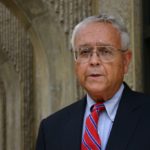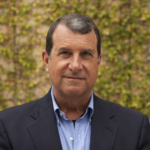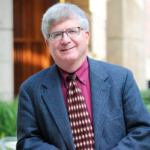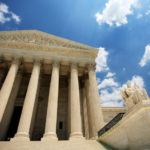SLS Faculty Weigh In on Recent SCOTUS Decisions in Roundup of the 2017 Term
In this roundup, Stanford Law School faculty members offer commentary on key SCOTUS decisions from this year’s term (beginning Oct., 2017), offering critical analysis.
Janus v. American Federation of State, County and Municipal Employees, Council Decision on June 28, 2018

Roberts Court Declares War on Collective Bargaining by Professor William B. Gould IV
For decades, conservative jurists and scholars criticized the Warren Court for judicial activism. With its Janus decision, the Roberts Court can now claim that description far beyond anything contained in the Warren Court decisions. Today, a 5-4 majority of unelected “Platonic guardians” have declared unconstitutional “fair share,” voluntarily-negotiated collective agreements in the public sector. The Court has thus projected the judiciary into the debate about issues like pensions and government bankruptcy in a decision in which the Court relies upon such for its conclusion that nonmember First Amendment rights have been denied. It also creates a new round of litigation and instability.
One of the many radical features of today’s decision is its declaration of war upon the system of collective bargaining in the United States, which is predicated upon private finance—and for the union side, this means union dues collected from a group, the majority of which have voted for union representation. Today’s decision substantially undercuts this system, emasculates the interests of workers, and promotes free riders—non-union workers who get the benefits of the union contract. Read more »
Trump v. Hawaii Decision on June 26, 2018

Trump v. Hawaii: A Roadmap for New Racial Origin Quotas by Professor Shirin Sinnar
The Supreme Court’s decision today upholding the travel ban is wrong—and wrenching—for many reasons. I will focus here on the legal argument that got the least play in the Court’s decision: the claim that the travel ban violated a non-discrimination provision of the immigration law. The Court’s failure to grapple with that mandate, alongside the Court’s deferential review of the constitutional claim, green lights future attempts to reconfigure immigration to America on racial lines.
To recap, the President’s third iteration of the ban, issued in September 2017, banned large groups of immigrants and visitors from eight, mostly Muslim-majority countries. The plaintiffs raised three claims—two statutory and one constitutional—challenging this latest travel ban. The first argument was that the travel ban exceeded the President’s statutory authority, under 8 U.S.C. § 1182(f), to bar aliens whose entry he deemed “detrimental” to U.S. interests. The second claim was that the ban violated a separate provision, 8 U.S.C. § 1152(a), prohibiting nationality discrimination in the issuance of immigrant visas. The third claim charged that the ban violated the First Amendment Establishment Clause by discriminating against Muslims. Read more »
Carpenter v. United States Decision on June 22, 2018

Supreme Court Defends Privacy in Cell Phone Location Data Collection by Albert Gidari
The Supreme Court has decided a singularly important privacy case in Carpenter v. United States. The Court ruled that a warrant is required to access historical cell site records — the records that a mobile phone company creates, maintains and even monetizes which show a person’s location as they use or carry their cell phone around. The Court decided that a person has a “legitimate expectation of privacy in the record of his physical movements.” This was a 5-4 decision, written by Chief Justice Roberts, with each of the dissenting Justices writing separately.
The ink is barely dry on the Opinion, and much will be written about its reasoning, meaning and impact in the days and weeks and probably years ahead, but here are a few observations on the case at first reading. Read more »
Gill v. Whitford and Benisek v Lamone Decisions on June 18, 2018

SiriusXM radio show Stanford Legal, co-hosted by Professors Pam Karlan and Joe Bankman: “Purging Voter Rolls with Guest Nathaniel Persily“
Stanford Law Professor Nathaniel Persily discusses important recent Supreme Court decisions on voting rights including one that allows Ohio to take the names of certain voters off its roles. Will this and other decisions impact one party’s voters disproportionately?
Masterpiece Cakeshop v. Colorado Civil Rights Commission Decision on June 4, 2018

Anti Discrimination Eats Itself by Professor Richard Thompson Ford
Do laws against discrimination themselves discriminate? They might: When religious teachings include belief in a natural patriarchal order, hostility toward non-believers, and condemnation of homosexuality, anti-discrimination laws can conflict with rights to religious liberty, broadly defined. The Supreme Court confronted such a conflict in Masterpiece Cakeshop v. Colorado Civil Rights Commission—a case involving a devout Christian baker, Jack Phillips, who refused to make a wedding cake for a same-sex couple, Charlie Craig and Dave Mullins. The couple and the Colorado Civil Rights Commission argued Phillips discriminated on the basis of sexual orientation. Phillips countered that forcing him to create a cake that celebrated same-sex marriage would discriminate against him because of his religion, violating his rights to free exercise of religion and freedom of expression. Last week, the Court sided with Phillips in a narrowly worded opinion that was virtually limited to the specific facts of this case, disappointing advocates of both gay rights and religious liberty. But the Court had few good options in Masterpiece Cakeshop because overly broad conceptions of civil rights protections have turned these important laws against themselves, like an overactive immune system that consumes its host.
To understand how this has happened, we need to compare the expansive idea of discrimination (and of religious and expressive liberty) at work in Masterpiece Cakeshop with an older, more workable conception. (There are, of course, very important doctrinal distinctions between free exercise, freedom of expression, equal protection and statutory anti-discrimination doctrine, but each has borrowed from and influenced each other in important ways. More to the point, Justice Kennedy analyzes the dispute in Masterpiece Cakeshop primarily through an anti-discrimination lens, focusing on evidence that the Colorado Commission acted with hostility toward religion.) The core idea of traditional anti-discrimination law is to prohibit discrimination on the basis of some ascribed status: Race is the paradigmatic example, of course, but sex, religion, national origin, age, and disability can all be thought of as social statuses that trigger prejudice and irrational discrimination. Obviously, most forms of behavior aren’t covered: Government is free to “discriminate” against pot-smokers, brawlers, and embezzlers; likewise employers who “discriminate” against tardy, belligerent, or dishonest employees are in the clear, legally speaking. Read more »

The Blockbuster That Wasn’t by Professor Jane Schacter
The Supreme Court’s decision in Masterpiece Cakeshop v. Colorado Civil Rights Commission was among the most highly anticipated of this Term. The case pit principles of religious liberty and free speech against LGBT equality. But the Court’s ruling is anything but a blockbuster. The Court delivered a clear victory for Jack Phillips, the baker who refused to bake a wedding cake for a same-sex couple, and in a legal area full of 5-4 splits, the 7-2 ruling was surprising. But the ruling was 7-2 because the Court crafted its rationale based on specific and idiosyncratic facts of the case, so the decision will have limited effect on future cases. Moreover, what signals there are in the majority opinion about the larger conflict suggests that issue may well be resolved against the broadest claims made by merchants seeking religiously-based exemptions from the command of anti-discrimination laws.
First, some background: The tension between claims for gay equality and religious liberty has long been part of the same-sex marriage debate. The Supreme Court’s 2015 decision in Obergefell v. Hodges ruled that same-sex couples have a fundamental right to marry, but did not determine the legal status of claims lodged by those who asserted that their religious beliefs precluded them from providing goods or services to same-sex weddings. Some wedding vendors—not only bakers, but florists, photographers and others—have argued that their First Amendment rights to the free exercise of religion and to free speech trumped laws that many states have enacted to ban discrimination in public accommodations based on sexual orientation. One of the central, and potentially broader, arguments made by these vendors takes the form of the free speech claim that a vendor cannot be forced by the state to express support for same-sex marriage by providing the goods and services requested by the couple. Many questions were raised by this free speech claim: does a baker really “express” anything by providing a wedding cake? Which other merchants can claim this expressive right, and how ought such free speech claims be weighed against the equality of the gay patrons who are turned away? Masterpiece was highly anticipated for how the Court would resolve this sharp conflict of values. Read more »

Justices Confound Expectation in Colorado Wedding Cake Case by Professor Michael McConnell
The Supreme Court today confounded all expectations, and decided the highly controversial Masterpiece Cakeshop case by a 7-2 vote. This is the case about a Colorado baker who, in accordance with his religious beliefs that marriage is properly confined to a man and a woman, declined to “design and create” a cake celebrating a same-sex wedding. The Court held that penalizing the baker for this refusal to violate his religious convictions violated the principle that the government “cannot act in a manner that passes judgment upon or presupposes the illegitimacy of religious beliefs and practices.” The Court emphasized the fact that the State of Colorado had permitted three other bakers to refuse to provide cakes that expressed sentiments opposed to same-sex marriage, condemning this disparity in treatment as demonstrating hostility to religious views.
In these days of intense culture conflict, the Supreme Court’s 7-2 majority demonstrates that concern about hostility and intolerance toward religious views is not a right-wing distraction, as some people say, but a broadly held and fundamental part of our constitutional values. The Court is to be commended for transcending its political divisions and delivering that much-needed message. It bears mention that four of the last five decisions by the Court protecting religious freedom were by unanimous or 7-2 votes, all of them against the government and all of them reversing lower court decisions. Read more »

Stanford Legal with Pam Karlan and Joe Bankman: “Controversial Wedding Cakes”
Stanford Law Professor and Stanford Legal co-host Pam Karlan discusses the Supreme Court’s decision to side with a Colorado cake shop owner who denied service to a gay couple who wanted him to bake a cake for their wedding.
Epic Systems Corp. v. Lewis Decision on May 21, 2018

An Epic Loss for Workers by Professor David Freeman Engstrom
Earlier this week the Supreme Court issued its decision in a trio of cases with awful implications for worker rights. Modern employers have increasingly required employees to enter into contracts whereby they agree to resolve disputes before an arbitrator rather than a court. Many employers, not content to merely push workplace disputes into arbitration, have also begun to impose contractual provisions requiring employees to agree to air legal grievances individually rather than joining together with other workers who have suffered the same wrongs. The question facing the Court was whether this latter type of provision in arbitration agreements should be enforceable. In a closely divided decision in Epic Systems Corp. v. Lewis, the Court said yes. Going forward, many workers who seek to arbitrate workplace disputes will have to go it alone.
The cases have attracted a flood of commentary, and I will no doubt end up duplicating some of it, including my colleague Bill Gould’s excellent analysis in these same pages. Still, here are a pair of thoughts that may help to size up the decision and its consequences. Read more »

Supreme Court Ruling Unfairly Snuffs Out Employee Rights by Professor William B. Gould IV
By a 5-4 vote, the Supreme Court ruled Monday that employer-promulgated individual arbitration procedures that require employees to waive the right to class actions are lawful. Such mechanisms are in poor repute because of their one-sidedness—even Uber has discontinued them for sexual harassment claims though, inconsistently, not for other employee grievances.
In arriving at its holding in Epic Systems v. Lewis, the Court has snuffed out employee rights to band together in a concerted way to enforce laws providing for minimum wages and maximum hours, prohibitions against discrimination for race, sex, religion or age, and other protections like those provided in wrongful discharge actions. Read more »
Upper Skagit v. Lundgren Decision on May 21, 2018

Upper Skagit v. Lundgren: Deceptively Straightforward Case Raises Fundamental Questions about Native Nations, History, and Sovereignty by Professor Gregory Ablavsky
On Monday, the Supreme Court issued its decision in Upper Skagit v. Lundgren, the Court’s third foray into the topic of tribal sovereign immunity in the last four Terms. From one perspective, the decision—which sent the case back down to the Washington Supreme Court for further proceedings—importantly clarified an earlier Supreme Court precedent, but otherwise broke little new ground. Viewed from another perspective, though, the case raises deep and fundamental questions about the place of Native nations within the U.S. constitutional framework.
Upper Skagit involved a set of facts out of a property-law exam hypo: the Upper Skagit Tribe in Washington State purchased an off-reservation plot of land, but soon confronted a quiet title suit from the neighbors, who alleged that they had adversely possessed a portion of the property. The tribe then invoked its sovereign immunity to attempt to bar the proceeding, yet the Washington Supreme Court—relying on an interpretation of the U.S. Supreme Court’s 1992 decision County of Yakima v. Confederated Tribes and Bands of Yakima Nation—concluded that tribes cannot invoke their sovereign immunity in an in rem proceeding. Read more »
Sessions v. Dimaya Decision on April 17, 2018

Supreme Court Strikes Down Key Deportation Provision by Professor Jayashri Srikantiah
The April 17 SCOTUS decision Sessions v. Dimaya strikes down part of the Immigration and Nationality Act that authorized the government to deport some immigrants, including lawful permanent residents, convicted of “aggravated felonies.” In this Q&A, Professor Jayashri Srikantiah, director of Stanford Law School’s Immigrants’ Rights Clinic, discusses the case.
Can you explain the key parts of the decision and why it went to the Supreme Court?
The case involves a lawful permanent resident who has a past conviction. The federal government tried to deport him based on that conviction, arguing that the conviction is a “crime of violence” aggravated felony. The Supreme Court took up the issue of whether the term “crime of violence” in immigration cases is unconstitutionally vague. Read more »
Further Analysis

SLS Con Law Faculty Discuss Justice Kennedy’s Legacy and Retirement
U.S. Supreme Court Justice Anthony M. Kennedy announced June 27, 2018 that he will retire at the end of July—handing President Trump an opportunity to reshape the Court for generations to come. Here, several Stanford Law School Constitutional Law scholars discuss Justice Kennedy’s legacy and the timing of his retirement.

Law professor and co-director of Stanford’s Supreme Court Litigation Clinic Jeffrey Fisher, shares his extensive experience arguing a case before the U.S. Supreme Court, including what it is like to prepare for and present a case.
